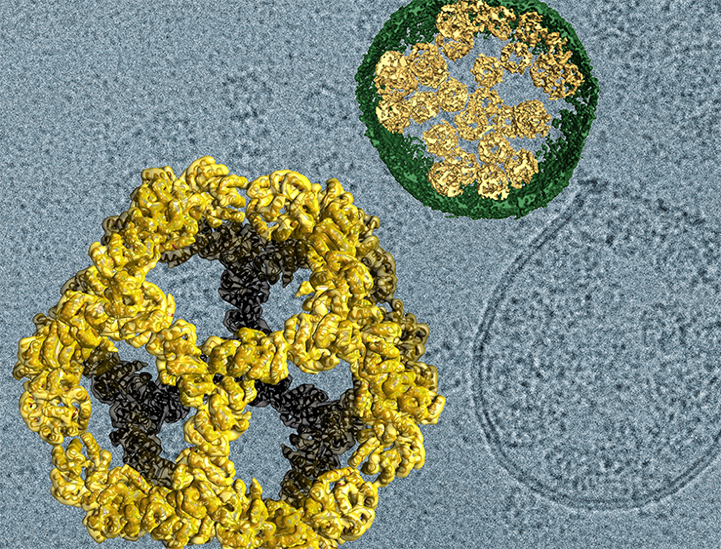
Complex biological processes are often performed by self-organizing nanostructures comprising multiple classes of macromolecules, such as ribosomes (proteins and RNA) or enveloped viruses (proteins, nucleic acids, and lipids). Approaches have been developed for designing synthetic self-assembling structures consisting of either nucleic acids or proteins, but strategies for engineering hybrid biological materials are only beginning to emerge.
Sundquist, King, Belnap, and colleagues reported the de novo design and characterization of proteins that direct their assembly and release from human cells within membrane vesicles. These virus-inspired delivery systems can also transfer biological cargoes between cells, and therefore represent an essential first step in the development of new synthetic systems for delivering therapeutic cargoes into diseased target cells.
References:

Designed proteins induce the formation of nanocage-containing extracellular vesicles. Votteler J, Ogohara C, Yi S, Hsia Y, Nattermann U, Belnap DM, King NP, Sundquist WI. Nature. 2016 Dec;540(7632):292.
Press Releases and Media:

University of Utah Health: “Virus-Inspired Delivery System Transfers Microscopic Cargo Between Human Cells”

